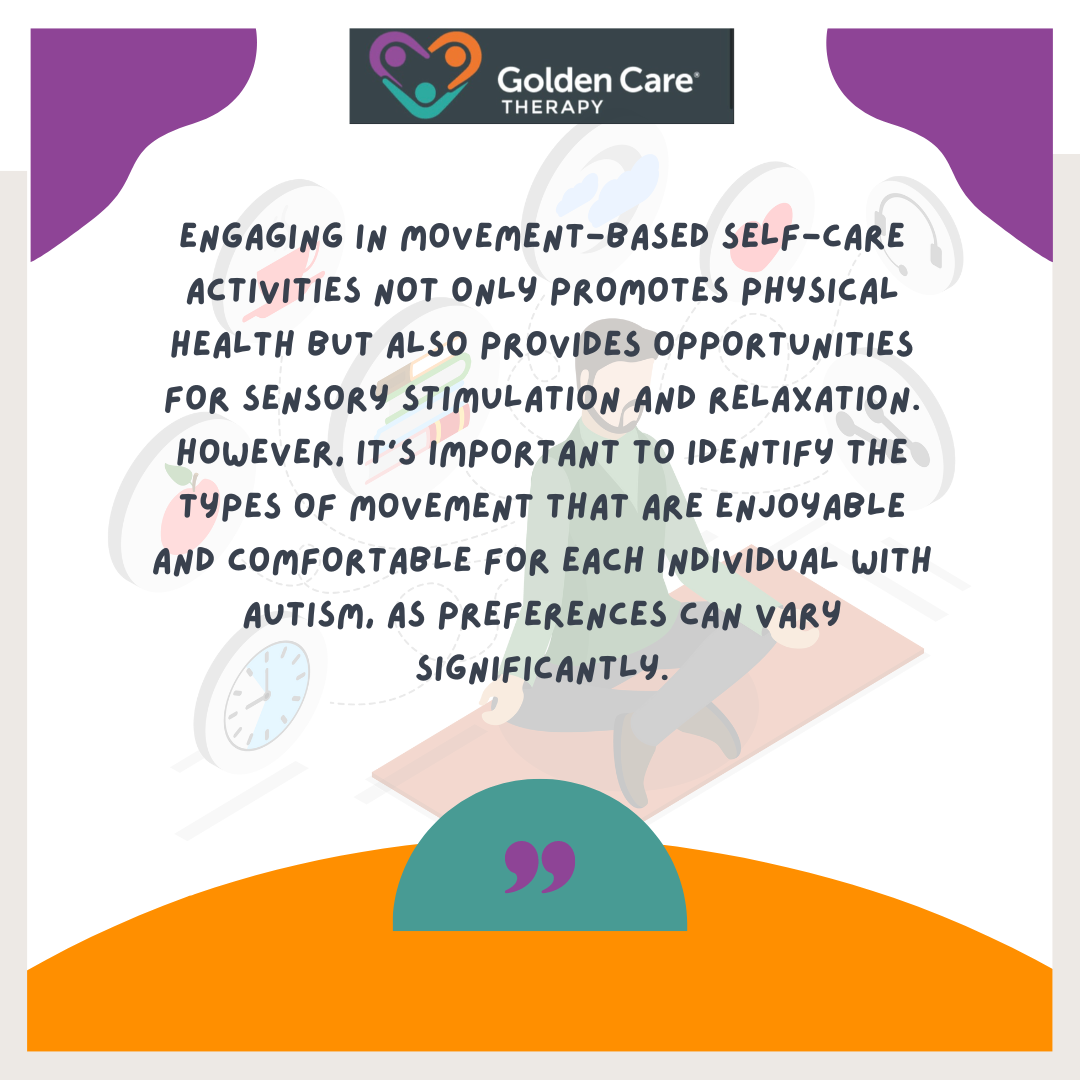
Table of Contents
Navigating daily life can present unique challenges for adults with autism. Whether it’s managing social interactions, handling sensory sensitivities, or finding a balance between work and personal life, finding effective coping strategies can make a significant difference. Understanding and implementing these strategies can lead to a more fulfilling and manageable life.
Without further ado, here are practical ways to address common difficulties and help create a supportive environment for autistic adults.
Music Therapy
For many autistic individuals, music serves as a powerful tool for therapy and relaxation. The calming effect of music can help soothe individuals during moments of stress or discomfort. Music therapy has been shown to reduce anxiety levels, improve mood, and promote emotional well-being in autistic adults.
Music offers a form of self-expression and a means of communication that doesn’t rely on words, making it particularly beneficial for those who struggle with verbal communication.
Whether through listening to music, playing an instrument, or engaging in rhythmic activities, autistic adults can harness the therapeutic benefits of music to regulate their emotions and find comfort in challenging situations.
Outdoor Walks
Engaging in outdoor activities, such as taking walks in natural settings, can be incredibly beneficial for autistic adults seeking to enhance their concentration and alleviate stress. The sensory-rich environment of the outdoors, with elements like trees, fresh air, and natural sounds, can provide a soothing and grounding experience for individuals with autism.
Walking in natural environments has been shown to improve focus and attention, making it a valuable coping strategy for autistic adults, especially in overwhelming or overstimulating situations.
The peaceful surroundings of nature can offer a retreat from sensory overload, allowing individuals to reset and re-center themselves in a calming environment.
Deep Breathing Techniques
Deep breathing techniques are invaluable tools for autistic individuals to manage stress and enhance emotional regulation. When faced with frustration or sensory overload, practicing deep breathing can prevent breath-holding or hyperventilating, thus promoting clearer thinking and emotional balance.
Focusing on slow, controlled breathing patterns can help autistic individuals soothe their nervous system and foster a sense of calmness in challenging situations. Deep breathing techniques serve as an effective strategy to navigate overwhelming emotions and support mental well-being.
Engaging in Hobbies and Activities
Encouraging individuals with autism to participate in hobbies and activities they enjoy can also serve as a powerful coping mechanism. Engaging in activities that bring pleasure and fulfillment can provide a sense of purpose and reduce anxiety levels.
Hobbies tailored to the individual’s interests and preferences can act as a form of self-expression and contribute to overall emotional well-being.
It’s important for caregivers and support systems to create a nurturing environment that allows for the exploration and enjoyment of hobbies. Whether it’s crafting, gardening, playing musical instruments, or engaging in other creative pursuits, these activities can serve as a positive outlet for expressing emotions and fostering a sense of accomplishment.
Reading and Drawing
For many adults with autism, reading and drawing are not just leisure activities but also powerful coping strategies. Reading offers a form of escapism, allowing individuals to immerse themselves in different worlds and perspectives. It can also enhance cognitive abilities, improve focus, and provide a sense of relaxation.
Similarly, drawing is a creative outlet that enables self-expression and emotional release. Through art, individuals with autism can communicate thoughts and feelings that may be challenging to express verbally. Engaging in drawing activities can promote mindfulness, reduce stress, and boost self-esteem.
It’s essential to recognize the therapeutic benefits of reading and drawing for individuals with autism. These activities can serve as valuable tools for self-soothing, emotional regulation, and enhancing overall well-being.

Coping Strategies for Resilience
Autistic adults often utilize various coping strategies to navigate the challenges of daily life. Among the strategies employed, problem-focused coping and emotion-focused coping are prevalent in this community.
Let’s look at each of them in further detail.
Problem-Focused Coping
Problem-focused coping is a proactive approach aimed at identifying and resolving the root causes of stress.
For autistic adults, this strategy may involve problem-solving techniques to address difficulties in different aspects of life. By taking steps to tackle the source of stress, individuals can regain a sense of control and reduce feelings of overwhelm.
In the context of autism, developing problem-focused coping skills often involves recognizing strengths and weaknesses, seeking education on effective coping mechanisms, and advocating for necessary support and accommodations.
That said, autistic individuals should have access to resources and support networks that offer guidance on problem-solving strategies and resilience-building. Websites, organizations, and webinars provide valuable information on coping mechanisms, pandemic survival kits, and tools for structuring daily routines, catering to the diverse needs of both autistic and neurotypical individuals.
Additionally, allowing autistic individuals to engage in self-stimulatory behaviors, such as stimming, can serve as a vital coping mechanism during periods of heightened stress or uncertainty. Understanding and respecting the significance of these self-regulatory behaviors can facilitate emotional regulation and reduce the impact of overwhelming stimuli.
Emotion-Focused Coping
Emotion-focused coping plays a complementary role in the coping repertoire of autistic adults, focusing on managing the emotional responses triggered by stressors. This approach involves recognizing and processing negative emotions effectively, fostering emotional resilience, and maintaining mental well-being amidst challenges.
Maladaptive coping strategies, such as avoidance and self-blame, have been associated with lower mental health-related quality of life in autistic adults. These responses can contribute to increased stress levels, potentially leading to autistic burnout characterized by chronic exhaustion and heightened sensitivity to environmental stimuli.
In contrast, effective emotion-focused coping allows individuals to acknowledge and address their emotional reactions in a constructive manner, promoting greater emotional stability and self-care.
Maintaining Routines
For adults with autism, maintaining familiar routines can provide a sense of structure and stability in an otherwise unpredictable environment. Routines help individuals stay organized, manage time effectively, and reduce anxiety.
Maintaining routines may involve sticking to regular meal times, bedtime schedules, work tasks, and leisure activities. Visual schedules or timetables can be helpful tools in providing a clear outline of daily activities, offering predictability and reducing stress for individuals with autism.
Self-Care and Movement
Self-care for individuals with autism extends beyond just physical well-being to include mental and emotional health. Incorporating regular movement and exercise into daily routines can have various benefits, such as reducing stress, improving mood, and enhancing overall well-being.
Physical activities like yoga, stretching exercises, or even simple walks can help adults with autism manage anxiety and maintain a positive outlook during the pandemic.

Encouraging and supporting adults with autism to participate in self-care practices that align with their interests and abilities can foster a sense of empowerment and self-regulation.
Navigating life as an adult with autism can be challenging but with the right coping strategies, it’s entirely possible to thrive. By embracing self-awareness, building a supportive network, and finding personalized routines that work for you, you can turn obstacles into opportunities.
Remember, there’s no one-size-fits-all approach – what matters most is discovering what makes you feel comfortable and empowered. So take these strategies, adapt them to fit your unique needs, and keep moving forward with confidence.
In the meantime, if you need personalized support, consider reaching out to Golden Care Therapy. We offer expert ABA therapy in New York, New Jersey, Indiana, and Georgia, and are dedicated to helping you find the best solutions for your needs. Contact us today to start your journey towards greater well-being.
Sources:
- Autism and Feeling Empty: What’s the Connection? - September 19, 2024
- Addressing Autism and Anger Issues - September 19, 2024
- Embracing Autism and Self-Acceptance in Daily Life - September 19, 2024
